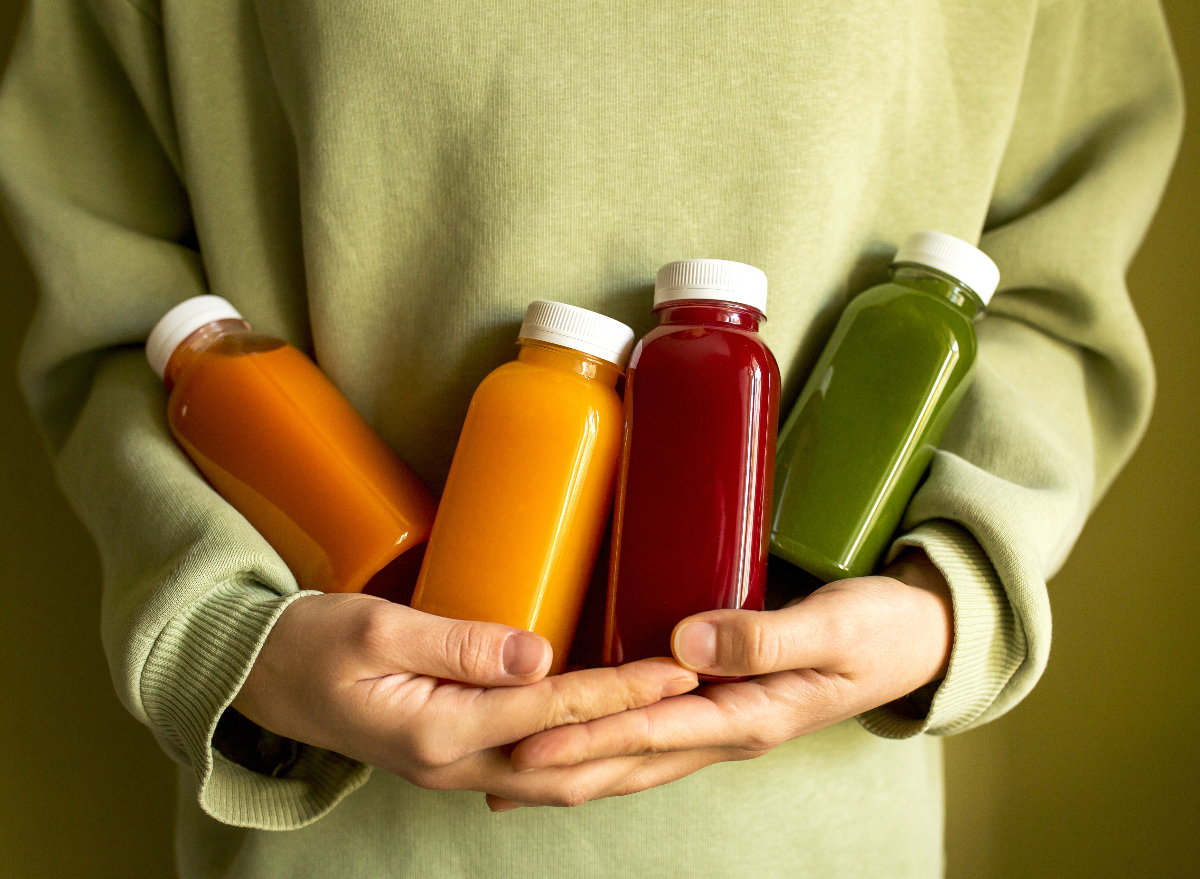
From fad diets to cleanses to supplements, there are plenty of weight loss methods out there that claim to help you slim down in a short amount of time. But as with anything in life, when something sounds too good to be true, it usually is. Many quick weight loss ploys can leave you feeling crummy, fatigued, and totally not like the best version of yourself. There are right and wrong ways to go about shedding excess pounds, and it’s crucial to be in the know about both. We spoke with experts who break down some of the absolute worst ways to lose weight. This way, you know exactly what to keep out of your routine.
Remember: It’s important to establish realistic goals, make healthy tweaks to your diet, get up and active, stay patient, and find a dedicated support system that will help you stay motivated along your journey. In order to stay on the right track to reach your goal weight in the healthiest way possible, keep reading to learn more about the worst ways to lose weight. And when you’re finished, don’t miss out on The “50-Mile Month” Walking Challenge Is a Surprisingly Easy Way To Get Fit.
Fad diets
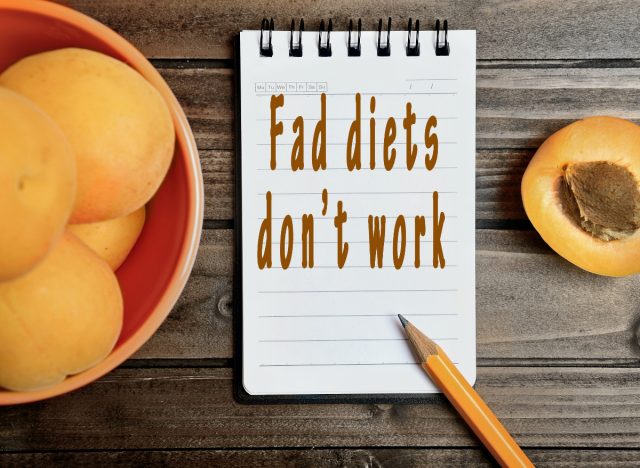
One major trend experts caution to stay away from is fad diets, such as the cabbage soup diet. When fad dieting, you’re restricting your body of vital nutrients. Plus, many individuals end up reverting back to their old habits and regaining the weight they worked hard to shed.
“Fad diets often eliminate entire food groups, leading to imbalanced nutrition,” says Amy Goodson, MS, RD, CSSD, LD, a registered dietitian and certified specialist in sports dietetics who sits on our Medical Expert Board. “When you remove a whole food group, you often remove the main nutrient group that food provides. They may provide short-term results but lack long-term sustainability. Fad diets can also make it difficult to eat with family and friends.”
Diet pills

Another fad to avoid is taking diet pills. According to Goodson, many of them don’t have scientific evidence to back up their claims, and this can result in negative side effects. “Relying on these can lead to health risks and an unhealthy relationship with food,” she adds. “Not to mention, nutrient-rich food is important for proper nutrients and health. A short-term fix often sends people in the other direction.”
Detoxes and cleanses
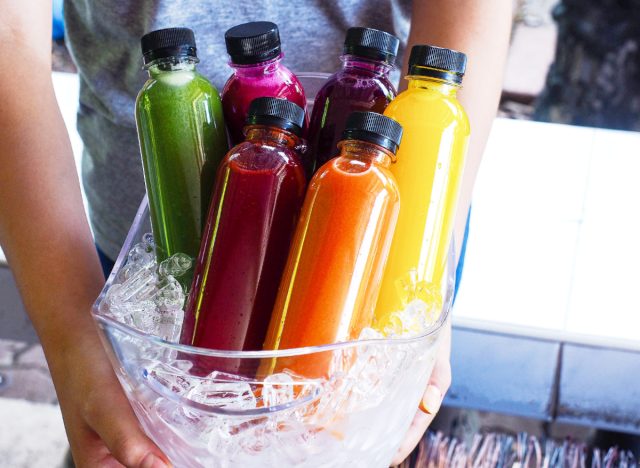
Experts stress to nix liquid or juice cleanses, along with detox diets. “Detox and cleanse diets are often based on the idea that you need to ‘cleanse’ your body of toxins,” explains Sam Schoeffler, CPT, Blink Fitness. “However, there is no scientific evidence to support this claim. Instead, focus on eating a healthy diet and drinking plenty of water and adequate electrolytes.”
Extreme calorie restriction
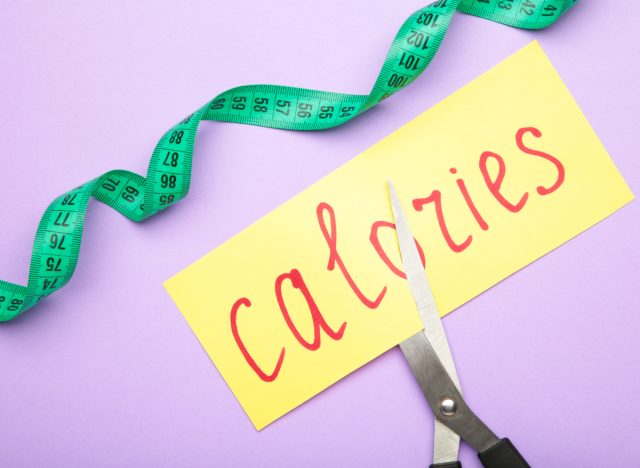
Going to the extreme when it comes to calorie restriction is an incredibly unhealthy way to drop weight. It can result in muscle loss, nutrient deficiencies, fatigue, irritability, and a slower metabolism. “It’s not sustainable and can result in rebound weight gain. Plus, it takes a toll on your energy levels, leaving you feeling tired and worn out,” warns Goodson. Schoeffler recommends focusing on healthy foods that will leave you feeling full.
Skipping meals
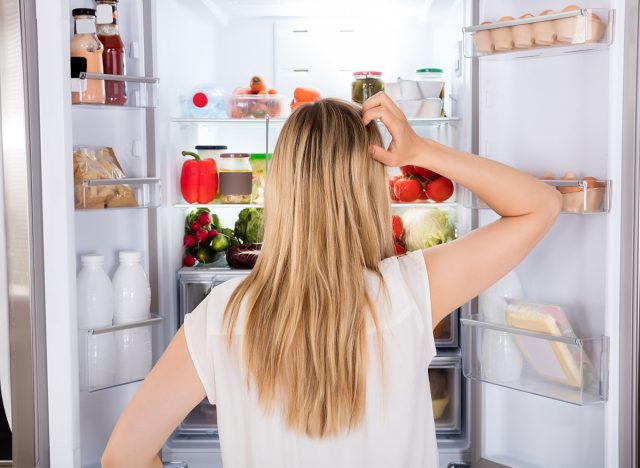
In addition to severely restricting your calories, skipping meals is another unhealthy no-go when it comes to weight loss. It’s crucial to consistently give your body the fuel it needs to preserve its energy levels and function to the best of its ability.
Not eating when you feel hungry can lead you to consume more food than you planned later on in the day, explains Schoeffler. “Instead, eat regular meals and snacks throughout the day,” she recommends. “This will help you keep your energy levels up and prevent you from getting too hungry.”
Overexercising

You may be surprised to hear that working out too much is possible. As a matter of fact, overdoing it at the gym can really set you back in your weight loss progress.
“Exercising is an important part of weight loss, but it’s important to find a balance,” stresses Schoeffler. “Overexercising can lead to injuries, fatigue, and burnout. Instead, aim for moderate-intensity exercise for 30 minutes most days of the week.”
Eating too many low-calorie or “diet” foods
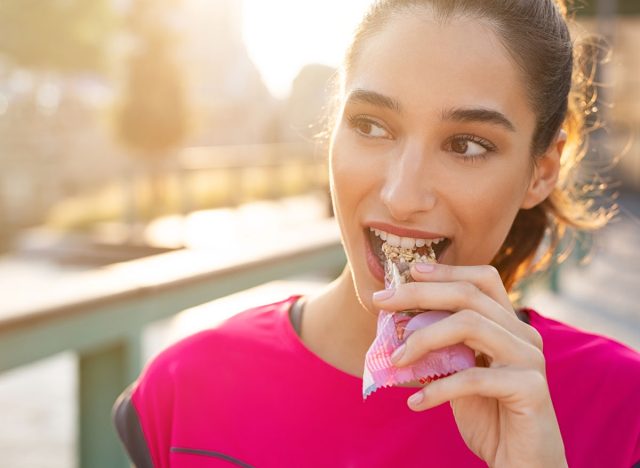
You can also overdo it when it comes to eating too many low-calorie or “diet” foods. Your body utilizes carbs as a main energy source. By cutting those out of your diet, you may feel irritable and fatigued, along with having headaches and feeling less energized to complete workouts.
“Low-carb and diet foods may seem like a good choice, but many times they don’t keep people satisfied, leaving them looking for other foods to feel full,” Goodson explains. “Not to mention, just because it’s low-carb doesn’t mean it’s good for you. Many of them replace carbohydrates with saturated fats and have decreased fiber.”
Overemphasizing supplements
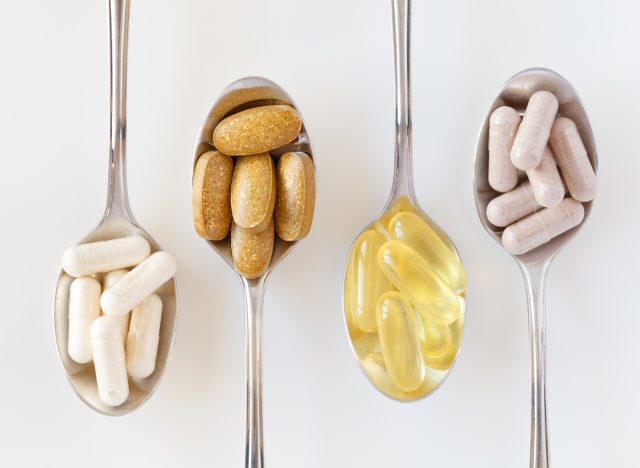
Banking on supplements rather than whole foods can result in a plethora of issues, such as nutrient imbalances, and prevent you from developing healthy, sustainable habits. “Foods also offer other nutrients that supplements don’t like fiber, protein, healthy fats, etc.,” Goodson adds. “Many people use supplements as replacements. The goal is to eat a well-balanced diet to fuel your body and help it lose weight, and then supplement with necessary vitamins and minerals. Research supports that in most cases, consuming excessive vitamins and minerals, when there is no deficiency, does not provide healthy benefits.”
Doing excessive cardio without prioritizing nutrition

Performing any intense workout without fueling your body with proper nutrition could lead to fatigue and muscle loss, and negatively affect your metabolism. “Not to mention, it can leave you feeling poorly throughout the day,” Goodson adds. “Consuming adequate calories, even if creating a deficit for weight loss, is essential to fuel the body to have the energy it needs.”
Counting calories obsessively
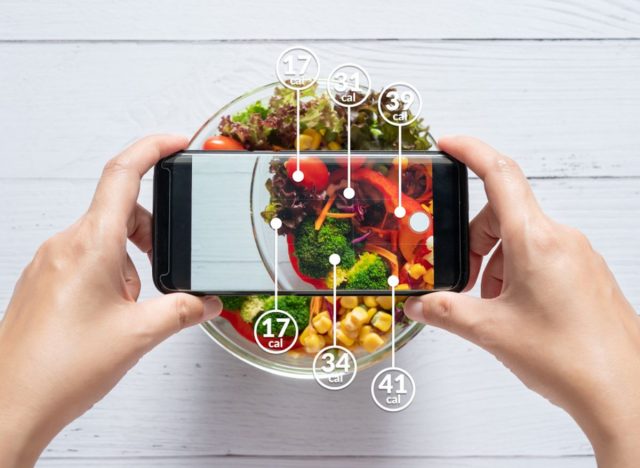
Don’t make calorie counting an obsession. “Constantly counting calories can lead to an unhealthy fixation on food and potentially trigger disordered eating habits,” Goodson warns. “It may also disregard the importance of food quality, leaving people eating low-calorie foods that are also low in nutrients. Many foods with protein and healthy fat are higher in calories (think peanut butter, nuts, etc.), but more satisfying, meaning that you can eat less and feel more satiated after eating. Paying attention to what you eat is important, but the obsession can lead to negative views and dissatisfaction with food.”
Elimination diets
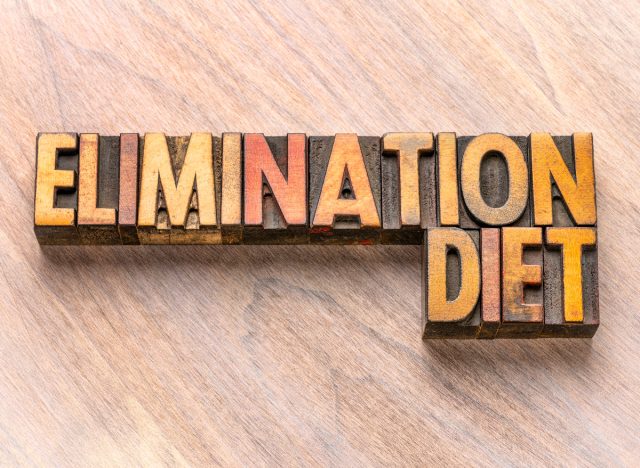
We can’t stress this enough: Cutting certain foods or food groups out of your life without it being necessary from a medical standpoint can lead to an all-around unbalanced diet and nutritional deficiencies. “Many times these diets remove a variety of nutrients from a person’s eating plan for no good reason,” Goodson tells us. “Restricting foods can also create a negative mindset around eating and leave people feeling deprived, potentially setting them up for an ‘eating rebound’ in the future.”
Crash dieting
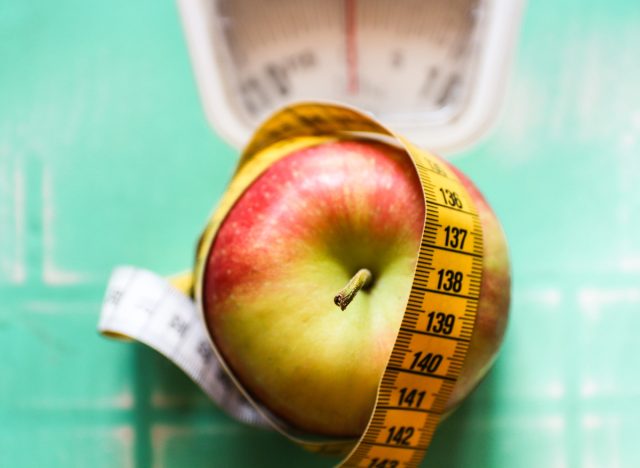
If you’re unfamiliar with crash dieting, it calls for consuming a limited amount of calories—and it’s something to stay away from so you don’t crash and burn. “This can be dangerous for your health, and is not sustainable in the long term,” says Schoeffler. “Instead, aim to lose weight at a healthy rate of one to two pounds per week.”
Consuming too much processed food

Highly processed foods typically come with high sugar and calorie counts. Not to mention, they are chock-full of unhealthy fats and don’t offer any nutritional value. “They tend to cause hunger more quickly and are associated with other negative health outcomes,” Schoeffler explains. “Instead, focus on eating whole, unprocessed foods.”
Drinking ice cold water
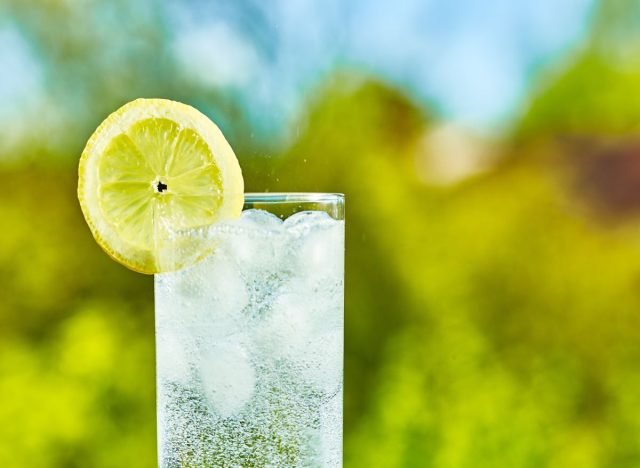
If you’re spending time each day to fill up your ice cube tray, it’s safe to say, your efforts aren’t worth your precious time. Sure, a glass of cold water tastes refreshing—especially on a hot summer’s day—but the temperature of your water doesn’t really matter that much. Staying hydrated in general is key to your weight loss efforts, but drinking cold water specifically will not help you lose weight. In fact, according to the University of Washington, sipping on a glass of cold water makes an extremely tiny dent in your overall calorie balance and it simply won’t pay off when it comes to your fat loss efforts.
Favoring certain food groups
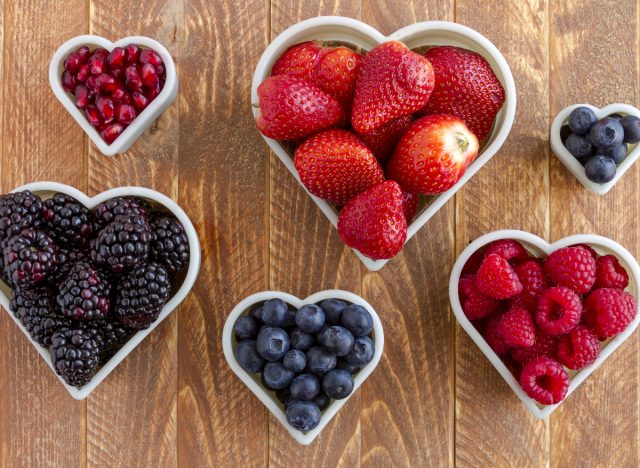
Variety is the spice of life, and that saying certainly rings true when it comes to following a healthy, well-rounded diet for weight loss. “Eating only certain food groups can lead to nutrient deficiencies,” says Schoeffler. “Instead, focus on eating a balanced diet that includes a variety of foods from all food groups.”
Going completely fat-free
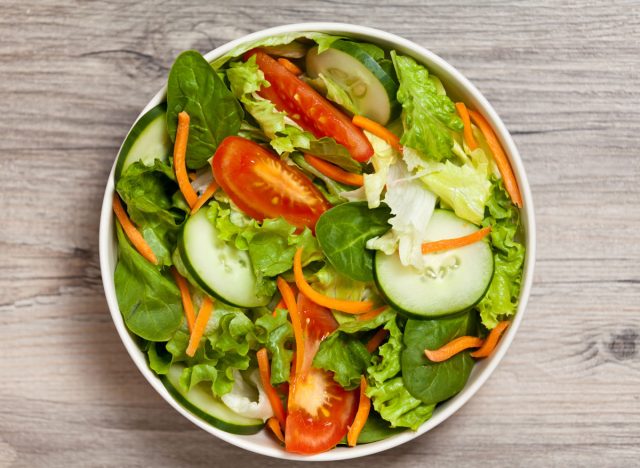
Contrary to popular belief, not all fats are bad. There are certain foods with high fat contents that are actually really healthy for you when consumed in moderation. Healthy fats can also help you feel full and manage hunger hormones. For example, grass-fed beef, coconut, nuts, avocado, dark chocolate, wild salmon, nut butter, and Greek yogurt are all examples of healthy fats that are excellent additions to your diet. Plus, research shows that low-fat diets aren’t effective when it comes to losing weight.
Sipping diet soda
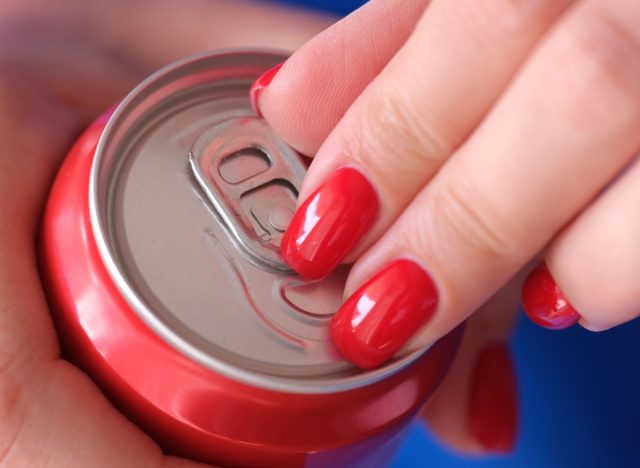
Don’t let the “diet” part of the name fool you. Diet soda is still an unhealthy choice when it comes to weight loss beverages, as it’s packed with unnecessary calories and sugar. Research backs this up. According to a study published in the Journal of the American Geriatrics Society, drinking diet soda is directly linked to a larger waistline in the long run. So opt for healthier choices. Jazz up your water by infusing it with fresh fruit, or add lemon or lime to plain seltzer.
Not eating enough omega-3s
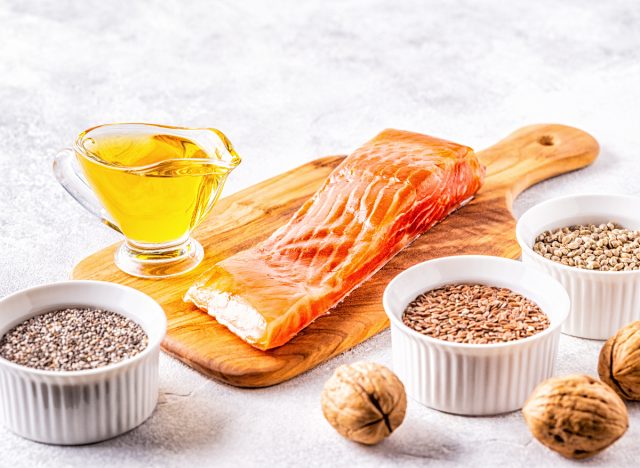
Eating foods that are dense in omega-3 fats, like chia seeds, wild salmon, and walnuts, is key when the goal is to lose weight. They can bring your blood sugar levels down, along with keeping you fuller for longer. In addition, research published in Medicine and Science in Sports and Exercise revealed that individuals who followed a routine of exercising and consuming fish oil experienced a boost in VO2 max along with a decrease in body fat.
Not getting sufficient sleep
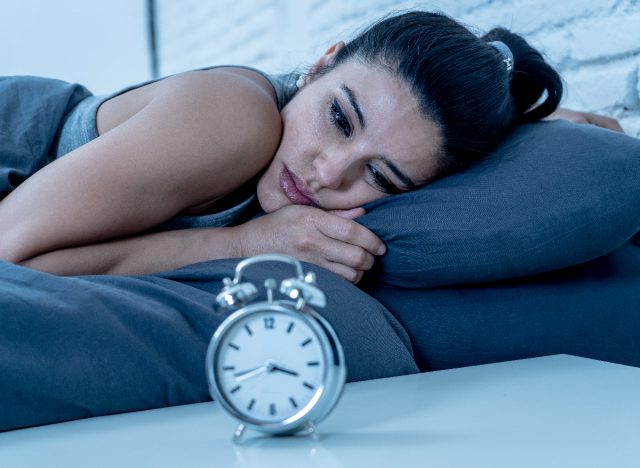
Getting a restful night’s sleep is crucial for your overall health and wellness, but did you know it can also support your weight loss efforts? As a matter of fact, Schoeffler explains, “When you don’t get enough sleep, your body produces more of the stress hormone cortisol, which can lead to weight gain.”
Make sure you are sleeping in a cold, dark environment, and power down any blue light devices long before you hit the sheets. Aim for a restful seven to eight hours of sleep each night.
Being impatient and wanting fast results
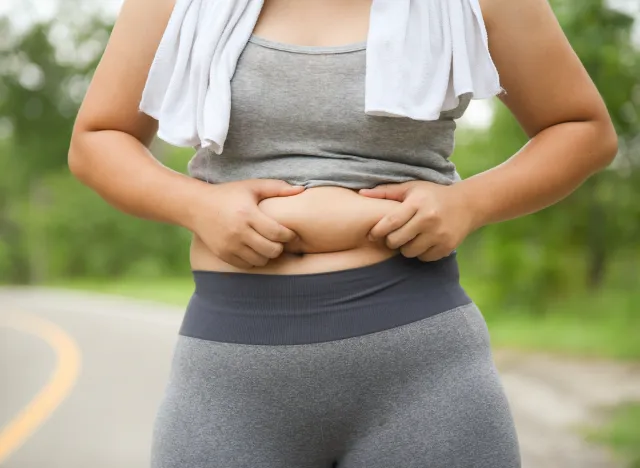
Losing weight healthily takes time, hard work, and dedication—so be patient. “Don’t get discouraged if you don’t see results immediately,” stresses Schoeffler. With the right tips and tricks on deck, along with knowing what to avoid, you’ll be on the right track to weight loss success.









